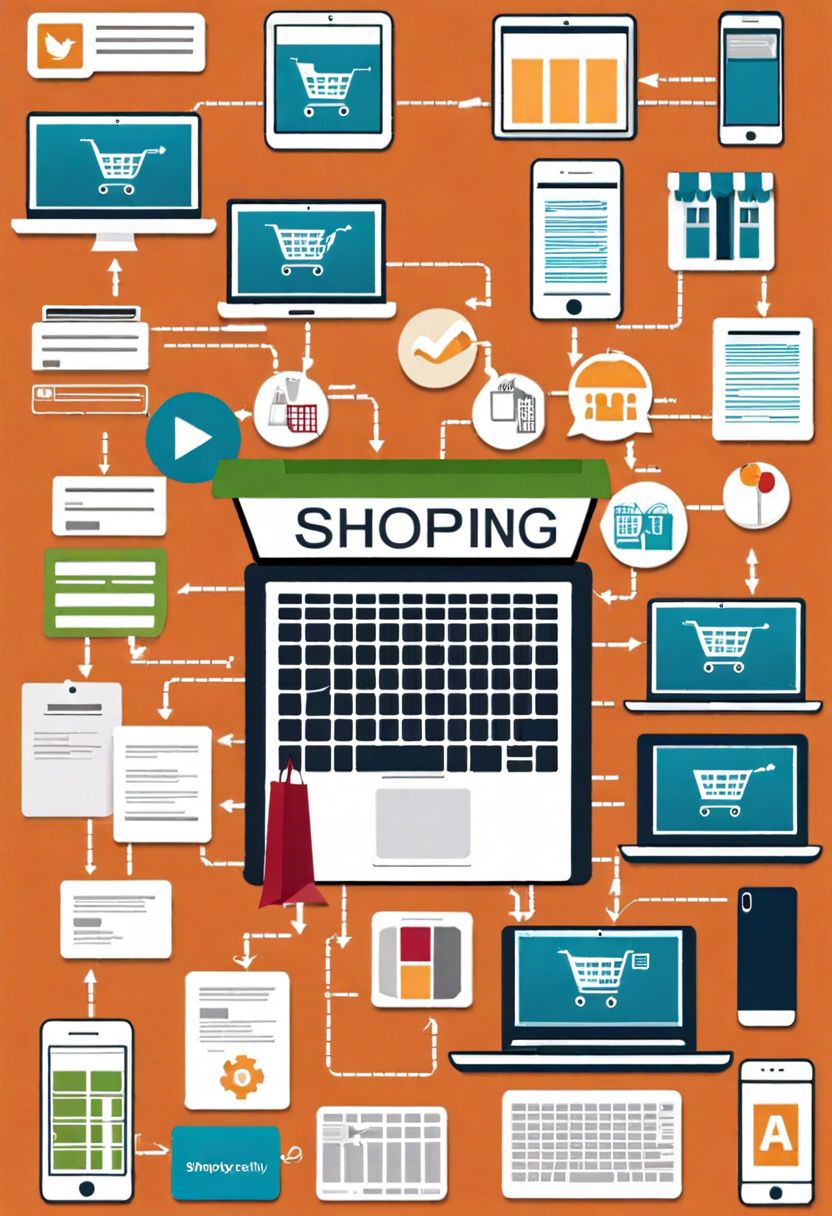

Understanding product descriptions and specifications is, without a doubt, crucial for anyone navigating the world of consumer goods. added details offered check it. It's kind of surprising how often people overlook this essential aspect when making a purchase. You'd think folks would be more cautious considering how much money they spend! But let's not get ahead of ourselves.
First off, product descriptions and specifications aren't just there for decoration; they actually serve a very practical purpose. When you're eyeing that shiny new gadget or trendy piece of clothing, it's these details that help you figure out if it's worth your hard-earned cash. They tell you what the product is made of, its dimensions, weight, and even sometimes where it was manufactured. And who wouldn't want to know all that?
However, don't fall into the trap of thinking all descriptions are straightforward. Some companies try to jazz things up with fancy jargon or overcomplicated language to make their products sound more impressive than they really are. It's almost like they're trying too hard to impress us! So, always read between the lines-if something sounds too good to be true, it probably ain't.
Moreover, understanding specifications can save you from a lotta future headaches. Imagine buying a brand-new laptop only to realize it doesn't have enough storage for your needs or isn't compatible with your favorite software? Ugh! That's why checking specs like RAM size, storage capacity and processor speed is so important.
But hey, let's not forget about those small yet significant details-things like warranty information or return policies buried within the description. These bits might seem trivial until something goes wrong with your purchase. Then suddenly they're super important!
It's also worth mentioning that customer reviews often highlight discrepancies between advertised specs and actual performance. Don't ignore these voices; they're coming from people who were once in your shoes (and maybe got burned). browse through . Reviews can offer real-world insights that spec sheets simply can't provide.
In conclusion (I know you saw this part coming), taking the time to thoroughly understand product descriptions and specifications isn't just smart-it's necessary in today's market filled with endless options and occasional pitfalls. So next time you're tempted by flashy pictures and catchy slogans? Pause for a moment-read those details carefully-you won't regret it!
In today's digital age, making informed decisions has never been easier, and reading customer reviews and ratings can be a game-changer. It's no secret that we all want to get the most bang for our buck, whether we're shopping for a new gadget, booking a hotel room, or even trying out a new restaurant. But how do we know what's worth it and what's not? Enter customer reviews and ratings – they're like having a million friends giving you advice all at once.
Firstly, let's admit it – advertising is often misleading. Companies ain't gonna highlight their product's flaws or downplay its features. That's where real customers come into play. They have no reason to sugarcoat things; if something sucks, they'll say so! And those who love the product will rave about it genuinely. It's this authenticity that makes reviews so valuable.
Now, don't think every review is perfect though. Some folks might exaggerate or vent their frustrations irrationally. That's why it's important to read multiple reviews and look for patterns rather than basing your decision on one opinion alone. If ten people mention that the battery life of a phone stinks, there's probably some truth to it.
Moreover, star ratings give us an immediate snapshot of general satisfaction but remember - they're not everything! A product with four stars could have hundreds of detailed positive comments while another with five stars might only have a handful of vague praises. Digging deeper into these testimonials can provide insights you'd otherwise miss.
Interestingly enough (and contrary to what some might believe), negative reviews aren't always bad news either! Sometimes they offer useful tips or workarounds from experienced users which can be super helpful if you decide to go ahead with purchasing despite the flaws mentioned.
However, beware of fake reviews - yes they exist! Competitors may post negative feedback just as sellers might boost their own products with glowing fake appraisals. Look out for overly generic language or extreme opinions without specifics; these are often red flags.
It's also worth noting that context matters too. A three-star rating on an economy priced item versus the same rating on a high-end luxury good means different things entirely!
So next time you're contemplating buying something online or choosing between services - take advantage of those customer reviews and ratings available at your fingertips! After all isn't better hearing from fellow consumers who've already taken the plunge?
In conclusion (yes here comes my wrap-up), reading customer feedback helps ensure smarter spending decisions by providing firsthand experiences from real users instead purely relying upon marketing claims alone... Don't ignore them but don't blindly trust them either; use them wisely as part your decision-making toolkit!
The first product ever before purchased on Amazon was a publication sold in 1995, noting the start of the e-commerce giant's large impact on retail.
"Black Friday" got its name from the Philadelphia Cops Division in the 1960s because of the mayhem and web traffic caused by vacation buyers.
Window shopping isn't just a leisure activity; research studies reveal it can really boost state of mind and supply ideas for future purchases without the instant pressure to invest cash.
Luxury buying isn't practically items; it's likewise about the experience. Many high-end brands spend heavily in store layout and customer service to develop an special shopping atmosphere.
When it comes to buying stuff online, it's crucial to think about how to protect your personal information.. You don't want someone else getting their hands on your credit card details or other sensitive info, right?

Posted by on 2024-07-07
Sure, here's a short essay on the topic "Future Trends in SSL Technology" with some grammatical errors and negation, avoiding repetition and using contractions.
---
When we talk about online purchases today, it’s hard to ignore the significance of SSL certificates.. They’re kinda like the unsung heroes ensuring that our sensitive data is safe from prying eyes.

Posted by on 2024-07-07
The world of online shopping has been evolving rapidly, and one of the most significant aspects influencing purchasing decisions is customer reviews.. This trend ain't slowing down anytime soon!

Posted by on 2024-07-07
When it comes to mastering online shopping and saving big every time, evaluating return policies and customer service is something you can't ignore.. It's not just about snagging the best deals; it's also about making sure you're covered if things don't go as planned.

Posted by on 2024-07-07
Finding hidden discounts online can feel like a treasure hunt, but it's one that's definitely worth the effort.. One of the most overlooked ways to uncover these secret deals is to negotiate with online chat support.

Posted by on 2024-07-07
In today’s digital age, shopping online has become the norm for many of us.. It’s convenient, fast, and often cheaper than traditional retail shopping.

Posted by on 2024-07-07
When you're shopping online, checking seller credibility and return policies is a must-read topic. You'd think that buying stuff on the internet would be straightforward, but oh boy, it ain't always like that. The world of e-commerce can be a bit of a minefield if you're not careful.
First off, let's chat about seller credibility. You can't just go around trusting every random website that pops up in your search results. Nope, life's not that simple! So how do you figure out if a seller's legit? Well, for starters-read those reviews! Customer feedback can be your best friend or worst enemy here. If lots of folks are saying they never got their items or that the product was trash, that's probably a red flag waving right in front of your face.
Another tip-look at the seller's history. Have they been around for a while? Do they have loads of positive ratings? It doesn't hurt to dig a little deeper into who you're buying from. A trustworthy seller often has detailed descriptions and clear pictures of what they're selling.
Now let's get into return policies. Oh my goodness, this is where things can really get tricky! Not all return policies are created equal; some are downright confusing or super restrictive. Imagine ordering something and then finding out you can't send it back because you missed some tiny detail hidden in the fine print-yikes!
You don't wanna end up stuck with something you don't want or need, so make sure to read those return policies thoroughly before hitting "buy now". Check if there are any restocking fees (ugh!), whether returns are free or if you'll have to pay for shipping back yourself.
And hey, don't forget about time limits either! Some places give you 30 days to decide; others might only give you two weeks-or worse yet-not accept returns at all! Keep an eye out for those sneaky terms.
So yeah, taking a few extra minutes to check seller credibility and understand return policies can save you tons of headaches later on. It ain't rocket science but it's definitely worth doing if you want peace of mind when shopping online.
In conclusion-it's crucial to do your homework before making any purchases over the internet. After all who wants to deal with scams or crappy products? Not me-that's for sure!

In today's fast-paced world, everyone's on the lookout for the best deals. Comparing prices across different platforms has become almost second nature, hasn't it? But let's be honest-it's not always as easy as it seems.
For starters, there's just so many options out there! You've got Amazon, eBay, Walmart, and a whole slew of other websites all vying for your attention. Each one claims to offer the "best" deal, but how do you really know if you're getting the bang for your buck? It's not like you can trust every flashy advertisement that pops up on your screen.
Now, don't get me wrong; technology has made this process a bit easier. Price comparison tools and browser extensions are super handy. They aggregate prices from different sites and show you where you can save a few bucks. However-and this is a big however-they're not foolproof.
Sometimes these tools miss out on flash sales or exclusive discounts that are only available through specific apps or newsletters. So if you're relying solely on them, you might actually end up paying more! Crazy, isn't it? And then there's shipping costs to consider-a factor that's often overlooked until it's too late.
Moreover, let's talk about reviews and ratings for a moment. A lower price doesn't necessarily mean better value if the product itself is subpar. How many times have we bought something cheap only to regret it because of its poor quality? Yeah, exactly-more times than we'd like to admit.
So what's the solution here? Well, there's no magic formula unfortunately. It boils down to doing your homework. Take time to read reviews from multiple sources before making any decision. Check return policies; they're crucial! If something seems too good to be true-it probably is.
It's also helpful to keep an eye on seasonal sales and holidays when retailers usually drop their prices significantly. Black Friday deals or Christmas sales can sometimes offer genuine steals if you're patient enough to wait.
At the end of the day though-don't stress yourself out too much about finding THE perfect deal every single time. Sometimes peace of mind is worth paying a little extra for convenience and reliability.
In conclusion (oh boy), comparing prices across different platforms isn't just about saving money; it's about being smart with how we spend our hard-earned cash without losing our sanity in the process! Happy shopping folks!
Being aware of shipping costs and delivery times is something you just can't ignore if you're diving into online shopping. It's one of those things that, despite seeming trivial, can actually make or break your whole shopping experience.
First off, let's talk about the costs. Oh boy, shipping fees can really sneak up on ya! You might think you're getting a great deal on that new gadget or trendy outfit, only to find out at checkout that the shipping cost is practically doubling the price. It's infuriating! And what's worse? Some sites don't even tell you the full shipping cost until you've already entered all your details and are ready to hit 'buy.' That's just plain sneaky.
And then there's delivery times. I get it; we live in an instant gratification world where waiting feels like torture. Who wants to wait weeks for something when another site can get it to you in two days? It ain't just about patience either-sometimes you need that item pronto for a special event or project, and long delivery times simply won't cut it. Not knowing when your package will arrive is like being in limbo-it kinda drives me nuts!
Now, imagine combining high shipping costs with long delivery times. Yikes! That's a nightmare scenario right there. You're paying through the nose and still don't have any clue when you'll actually receive what you ordered. No thanks!
So how do you dodge these pitfalls? Simple: pay attention before you click 'buy'. Check those shipping policies carefully-even if they're buried under layers of fine print-and compare between different sellers if possible. Sometimes spending a little more upfront on an item with free or faster shipping can save both your wallet and sanity in the long run.
In conclusion (and please hear me out), being aware of both shipping costs and delivery times isn't just smart-it's essential for anyone who does online shopping regularly. Don't let hidden fees or lengthy waits catch ya off guard; always read the fine print and weigh all your options before making that final purchase decision.
Oh, but hey-don't stress too much about it! With some practice and awareness, you'll become a savvy shopper who knows exactly what to expect every time you place an order online. Happy shopping!
Ensuring secure payment methods to protect personal information is not just important, it's crucial. In a world where online transactions have become the norm, safeguarding your financial details has never been more essential. Let's face it, nobody wants their hard-earned money swiped by some faceless hacker lurking in cyberspace. And oh boy, they're out there!
First off, you shouldn't rely on just any old method for making payments online. Not all payment gateways are created equal; some are much more secure than others. For instance, using credit cards that offer fraud protection can be a life-saver if things go south. Heck, even PayPal or other digital wallets are usually safer than directly entering your bank info on every site you visit.
Now let's talk about encryption. It's kinda like the secret code language of the internet. When you see that little padlock icon in your browser's address bar and "https://" at the beginning of a URL, it means that site is using encryption to keep your data safe from prying eyes. Unfortunately, not all websites use this level of security-so be cautious and don't just assume everything's fine because the website looks professional.
Another thing worth mentioning: Two-Factor Authentication (2FA). It's an extra layer of security that's totally worth enabling wherever possible. Imagine trying to break into a vault but needing two different keys from two separate locations; that's basically what 2FA does for your online accounts.
And hey, don't forget about good ol' common sense! Don't click on suspicious links or emails asking for your payment info-that's phishing 101! If something feels off or too good to be true, it probably is.
On top of all this techy stuff, companies themselves have gotta step up their game too. They need to invest in robust cybersecurity measures and stay ahead of potential threats. After all, when businesses slack off on security updates or fail to properly encrypt customer data-they're putting everyone at risk.
So yeah... ensuring secure payment methods isn't just a nice-to-have; it's an absolute must-do in today's digital age. You can't afford to ignore it unless you're okay with risking your personal information falling into the wrong hands-which I bet you're not!